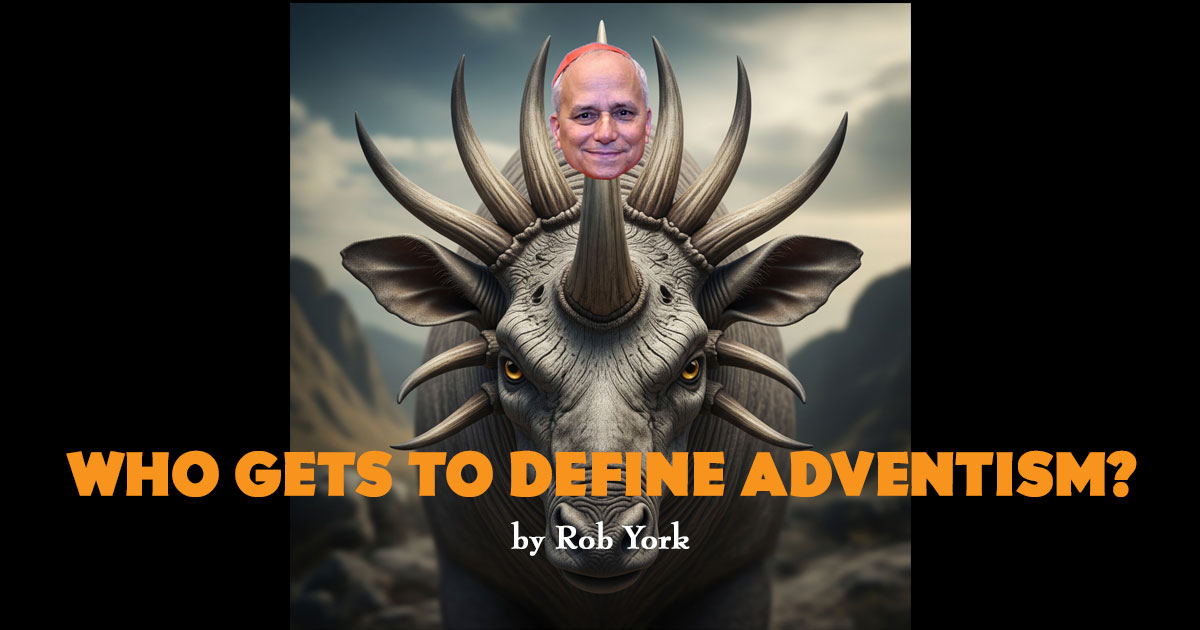“Terra promessa”: una meta concreta, ma anche simbolica. La settima lezione della Scuola del Sabato ci invita a riscoprire la fedeltà di Dio nelle nostre vite, anche quando sembrano campi di battaglia. Source: https://www.youtube.com/shorts/z1pZxKmZYlY
7: Ultimate Loyalty: Worship in a War Zone (Matthew 6, Joshua 5 and 8) – Teaching Outline
Introduction: Top American universities such as Harvard, Yale, Princeton, Columbia, Duke, Emory, and William & Mary all started out as religious institutions. Harvard and Yale were intended to train members of the clergy. Today, no one considers Harvard, Yale, or Princeton religious schools.  What happened? They lost sight of their religious goals. One of the things I love about Regent University is that year after year, our religious goals are constantly being reinforced. Is this a problem for Christian families? Do very religious parents find that the next generation loses its religious focus? How can that be prevented? Our study this week gives us some important clues. Let’s jump into our study of the Bible!
What happened? They lost sight of their religious goals. One of the things I love about Regent University is that year after year, our religious goals are constantly being reinforced. Is this a problem for Christian families? Do very religious parents find that the next generation loses its religious focus? How can that be prevented? Our study this week gives us some important clues. Let’s jump into our study of the Bible!
I. First Things First
A. Read Matthew 6:25. There are troubling studies showing that young people are extremely anxious. What does this text tell us about how long anxiety has been an issue for humans?
- How would you answer the question about whether life is more than food? Isn’t food essential for life?
B. Read Matthew 6:26. Would this statement convince you? Do you tell your children that they need not work or plan for the future because birds do not have to work or plan?
C. Read Matthew 6:28-29. If you did nothing, would you have glorious clothing?
D. Read Matthew 6:27 and Matthew 6:30. On the surface, what Jesus previously said about birds and lilies seems very questionable when applied to humans. How does Jesus explain those questionable statements in these verses? (Jesus is not telling us to be lazy. He is saying, “Do not be anxious about the future.” God cares for minor things, like birds and flowers, so He will care for important things like you.)
E. Read Matthew 6:32-33. How should we prepare for the future? (Jesus’ point is that we should first seek to promote the Kingdom of God and the righteousness of God, and God will take care of the rest. This is not an instruction for laziness.)
- Let’s talk about tomorrow. Tomorrow, what would you do to “first” seek God’s kingdom and righteousness? (I put “God work” first. For example, it is my aim to start my work day by writing part of the GoBible study. When I was young, I went to law school with the idea of working for the Church. When I proposed to my wife, I promised her I would be a “poor” lawyer (meaning “not rich”) because the Church did not pay very much. Those things put God first.)
II. Kingdom First in Action
A. Read Joshua 5:2-3. We previously discussed this very “odd” action of circumcising the fighting men after they crossed the Jordan, and not before they crossed. The logical problem was that they were now vulnerable to the army of Jericho. What is the positive logical argument for doing this? (It depends on what is your first priority. If your first priority is being able to fight, you would not do this. But if your first priority is getting right with God, you would do this.)
B. Read Joshua 7:2-5. Is this poor military planning? (Read Joshua 7:10-12. The failure was not military; it was spiritual. The people had disobeyed God.)
- What does this tell you about God’s instruction to circumcise the fighters first? (God understood that their vulnerability was spiritual.)
C. Read Joshua 5:10-11. What is Joshua having the people do now? (Celebrate the Passover.)
D. Read Joshua 4:19 and look again at Joshua 5:10. What does this tell us about the location and timing for celebrating Passover? (They are still where they first camped after crossing the Jordan. This is four days later. And it follows the circumcision.)
- Read Exodus 12:26-28. What does Passover celebrate? (It celebrates the final plague that caused Pharaoh to release God’s people from slavery and allow them to begin their journey to Canaan.)
- What benefit do you see in celebrating the Passover at Gilgal? (It reminds them that God is more powerful than the nations they faced or will face.)
- If your approach to seeking first the Kingdom of Heaven each day is like mine, to study the Bible, how will that impact the rest of your day? (Assume that you are anxious, the stories that we are studying give us confidence that if we are on God’s side He will fight for us.)
E. Read Joshua 5:11-12. Why has the manna stopped? (Because they no longer need it. They are eating the produce of the land promised to them.)
- What spiritual lesson do we find in this? (God is the source of all our blessings, but He encourages change that places more responsibility on us.)
- When my wife and I were first married, we were extremely poor. When our only car had to go to the shop for a repair, that was a matter of great prayer. Now I know I have enough money saved for any car repair. It has crossed my mind that now I’m relying on money rather than God. What does Joshua 5:11-12 suggest is the correct conclusion? (God blessed me with the money to pay. It is a different way that God helps me. The key is to focus on the fact that the source of all blessings is God.)
III. Generational Faith
A. Read Joshua 8:30-31. We are jumping around in Joshua. What just happened in chapter 8 that we studied in our most recent lesson? (This is the initial defeat at Ai because of sin, followed by a complete victory at Ai. Why build an altar after the victory and not before?
B. Read Joshua 8:32 and Deuteronomy 27:1-4. Are there two altars? One for the sacrifice and one for the written memorial? (Many commentators believe there are two altars and so do I. Having a fire on top is inconsistent with a white sided altar with writing on it.)
- Look again at Deuteronomy 27:2. When Moses said to build these altars “on the day you cross the Jordan,” did he mean that same day? (It appears from the underlying Hebrew term that a literal day might not have been meant. But I wonder if they had reviewed the law before the attack on Ai, Achan might not have given in to his greed.)
C. Read Joshua 8:32. Is Joshua writing the Ten Commandments on this memorial? (Read Joshua 8:35. This seems to be much more than the Ten Commandments.)
- Would the common people now be able to read God’s law? (Read Deuteronomy 27:8. This instructs that the words must be written “plainly.” People must be able to read the words.)
a. Does this apply to reading your Bible? (If you are using a Bible that is difficult for you to understand, you need to replace it with one you can plainly understand.)
D. Read Joshua 8:33-34. Picture this in your mind. The ark and the Levites are in the middle. Half of the Israelites are on the Mount Gerizim side and the other half are on the Mount Ebal side. What are they doing? (Read Deuteronomy 27:11-15. Those on one side call out blessings and those on the other side affirm curses.)
E. Let’s read some of the curses that are declared by the Levites. Read Deuteronomy 27:15-19. Are these a repetition of the Ten Commandments? (No. Although you could argue that they are included in a proper understanding of the Ten Commandments. This is part of the reason why I think the plastered altar had written on it more than the Ten Commandments.)
- Does it trouble you that only the curses are stated? (Two things. First, if you read carefully Deuteronomy 27:15-25 these have in common that they are sins done in secret. Achan committed his sin in secret. Secret sins are still bad for you. Second, Deuteronomy 28 starts out with a list of blessings.)
F. Friend, what have we learned about generational faithfulness? First, we need to keep God first and prominent in our life. All challenges are spiritual. We and our children need to be constantly reminded of God’s will for us. Second, we need to keep sight of the positive side of obedience and the negative side of disobedience until these principles become ingrained in our heart and minds. Will you agree to this?
IV. Next week: Giants of Faith: Joshua and Caleb.
Copr. 2025, Bruce N. Cameron, J.D. Scripture quotations are from the ESV® Bible (The Holy Bible, English Standard Version®), copyright © 2001 by Crossway, a publishing ministry of Good News Publishers. Used by permission. All rights reserved. Suggested answers are found within parentheses. If you normally receive this lesson by e-mail, but it is lost one week, you can find it by clicking on this link: http://www.GoBible.org. Pray for the guidance of the Holy Spirit as you study.
 (0)
(0)News from St. Croix, Solomon Islands, Loma Linda University Health, & Jamaica

13 November 2025 | News from St. Croix “Cancer patients at the Governor Juan Luis Medical Center in St. Croix are receiving comfort and encouragement through a simple, handcrafted gift, crocheted hats made and donated by a member of the Peter’s Rest Seventh-day Adventist Church. On October 28, 2025, church leaders joined hospital administrators as […] Source: https://atoday.org/news-from-st-croix-solomon-islands-loma-linda-university-health-jamaica/
Hope and Healing for Ukraine’s Displaced Families
Thousands in Ukraine have lost homes, livelihoods and access to medical care. In Chernivtsi, AWR360° Health hosted a free medical clinic for internally displaced families, offering treatment, comfort and hope during a time of great hardship. Thank you for helping make this possible. Interested in mission work? Visit https://awr.org to learn more. Watch the entire story titled, “Ukraine: Hope in the Midst of Despair” here: https://youtube.com/watch?v=G60XFkB5gPg&list=PLGPdsC4UKngvIjmopZVCO04npt1T3zKOR&index=4 #AWR360 #BroadcastToBaptism C5PSP5ZRSTZ3P3DF 4GFW9V3VTDB1EKGT XN2GLSKOFEI7WMLF FBYWVIOBXHVZ6R3Z Source: https://www.youtube.com/shorts/PrXCQl_Ecao
God First: Your Daily Prayer Meeting #1175
"If you believe, you will receive whatever you ask for in prayer" (Matthew 21:22, NIV).
Tag someone in need of prayer, and kindly share your prayer requests here:
https://wkf.ms/3DBuapQ Source: https://www.youtube.com/watch?v=-WtKF72Eg5o
A volte dimentichiamo che la terra non ci appartiene. È un dono che Dio ci affida.
Il messaggio del Giubileo ci invita a fermarci, a rispettare il mondo che abitiamo e a riscoprire la bellezza di vivere in armonia con esso. 👉 https://youtu.be/uXAi8XH1LbI Source: https://www.youtube.com/shorts/mhRS2-7Ax_s
Against All Odds
Elmer was in a downward spiral of addiction and depression. For years he’d struggled with gambling, smoking and alcohol, but after his wife died, he’d given up on life and surrendered to his destructive behavior. He’d once belonged to a Protestant church, but now the members of his congregation considered him beyond help. Friends and co-workers shunned him, and Elmer lived without hope. But God knew the circumstances of his life, and He understood Elmer’s struggles, just like He knows yours and mine. “You keep track of all my sorrows. You have collected all my tears in your bottle” (Psalm 56:8). One day, one of Elmer’s friends called the local AWR radio station and requested that someone visit Elmer and take him one of our radios. It was a half-hearted last-ditch effort to help Elmer, but I thank God for our dedicated men and women who work at our radio stations around the world. They did not ignore the request, and soon someone visited Elmer. Watch this video to learn the rest of the story, and see how God can turn even the most hopeless cases into a heartfelt testimony. Yours in the Blessed Hope, Jim Howard
President Sync ID Code
MB01ILA8MF9VYNR Source: https://www.youtube.com/watch?v=Mfqwlwi5V8A
Giovanni 10:10 – Apri la porta del tuo cuore
"Il ladro non viene se non per rubare, ammazzare e distruggere; io sono venuto perché abbiano la vita e l'abbiano in abbondanza". 📖 Giovanni 10:10
—
💌 Apri la porta del tuo cuore
🗣 Speaker: Albert Tapu Una collaborazione con l'@IstitutoAvventista Source: https://www.youtube.com/watch?v=zRTUK-7ttWA
Satan Personates Christ–Part 2 | Michael Pedrin | Bible Study | Nov. 12, 2025
Discover the 12 unmistakable aspects Satan cannot counterfeit. Source: https://www.youtube.com/watch?v=X8xEIUiNvm4
Who Gets to Define Seventh-day Adventism?

by Rob York | 12 November 2025 | All of us who have grown up in the Seventh-day Adventist Church have heard that the Roman Catholic Church is the sea beast of Revelation 13, and that the institution of the papacy is the little horn of Daniel 7, uprooting what came before it and speaking […] Source: https://atoday.org/who-gets-to-define-seventh-day-adventism/
- « Previous Page
- 1
- …
- 147
- 148
- 149
- 150
- 151
- …
- 4854
- Next Page »

